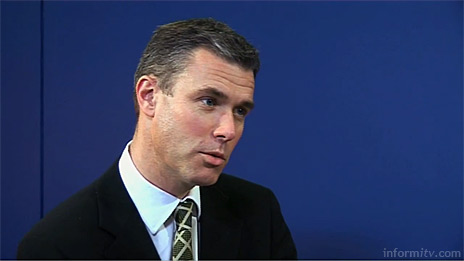The future for public service broadcasting in the United Kingdom has been outlined by the communications regulator Ofcom. It says “the current model of commercial public service broadcasting is clearly no longer sustainable”. The main recommendations are to maintain the BBC as the sole beneficiary of the television licence fee but ensure that there is also a viable alternative to provide public service programming. It suggests that Channel 4 could be at the heart of a new organisation, possibly in partnership with BBC Worldwide or the commercial broadcaster Five.
The regulator has rejected suggestions that the some of the BBC funding should be given to other organisations. It proposes to free up ITV and Five as commercial networks with limited public service commitments.
The main proposal is for the creation of an alternative public service institution to the BBC with Channel 4 at its heart, through partnerships, joint ventures or mergers.
One option would be for Channel 4 to form a new relationship with BBC Worldwide, the commercial arm of the corporation. Another could be for Channel 4 to merge with a commercial organisation, such as Five. The regulator said that any partnership would need to maintain and strengthen delivery of the public purposes.
The alternative, it suggests, is to find another form of direct funding for Channel 4, relieve it of its special remit and reposition it as a commercial network, or allow managed decline in its existing form.

Ed Richards, the chief executive of Ofcom, outlined the proposals. “The central challenge is how a strong and historically successful public service broadcasting system can navigate from analogue to digital,” he said. “Our proposals aim to sustain the quality and creative spirit of public service broadcasting while capturing the opportunities of broadband distribution, mobility and interactivity.”
“These proposals set out what we believe is required to fulfil a vision of diverse, vibrant and engaging public service broadcasting content across a range of digital media.”
The recommendations to the government also consider specific funding of programming for older children and the provision of news in Scotland, Wales and Northern Ireland.
The future of public service broadcasting has been the subject of intense lobbying in Britain. ITV and Channel 4 both claim that they will not have sufficient commercial revenues to support their public service commitments.
The Ofcom report does not offer a simple solution. It recognises the BBC as the cornerstone of public service broadcasting in Britain. While relaxing the public service commitments on ITV, it offers Channel 4 no further funding but leaves it with the option to find a commercial partner.
The Ofcom plans are published in a report titled Putting Viewers First which is a available from its web site.
